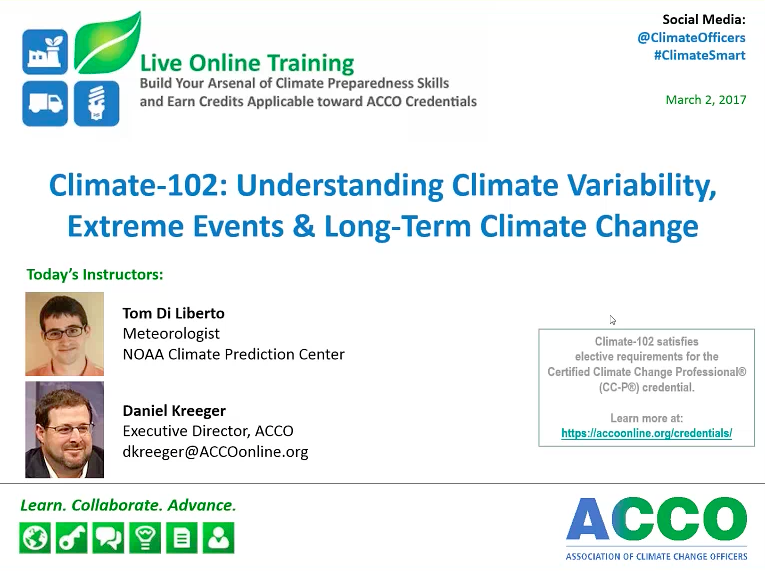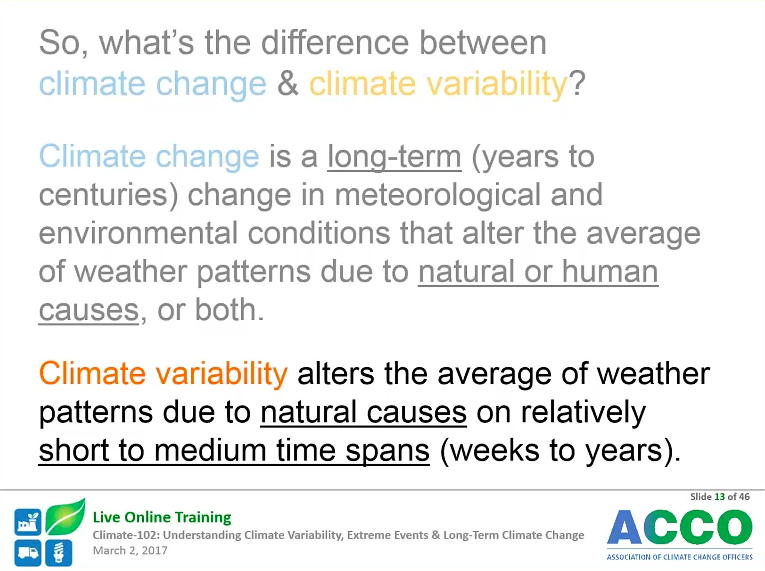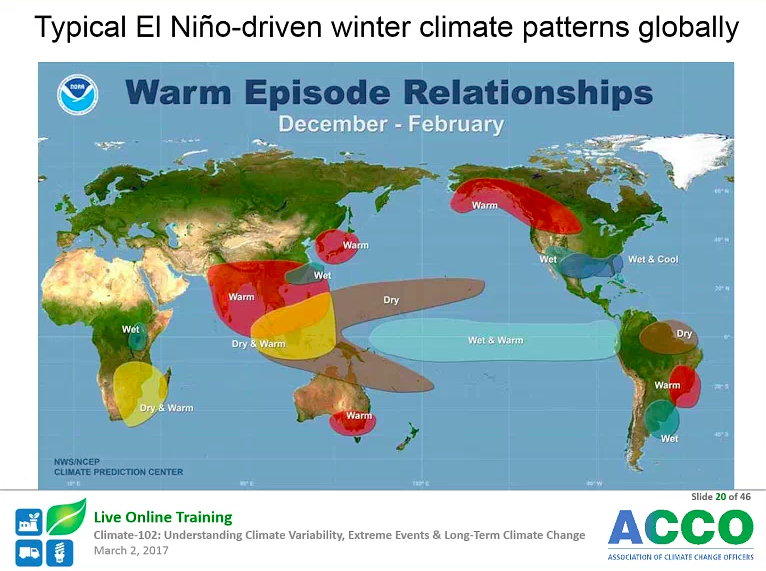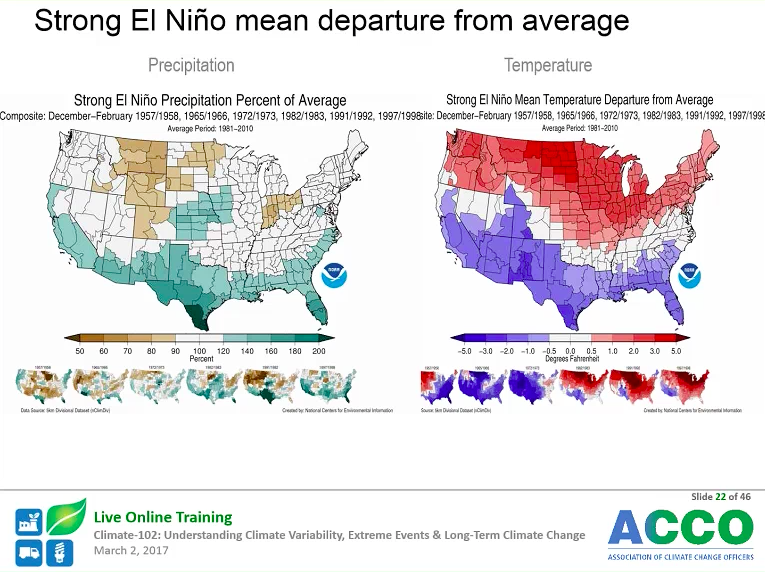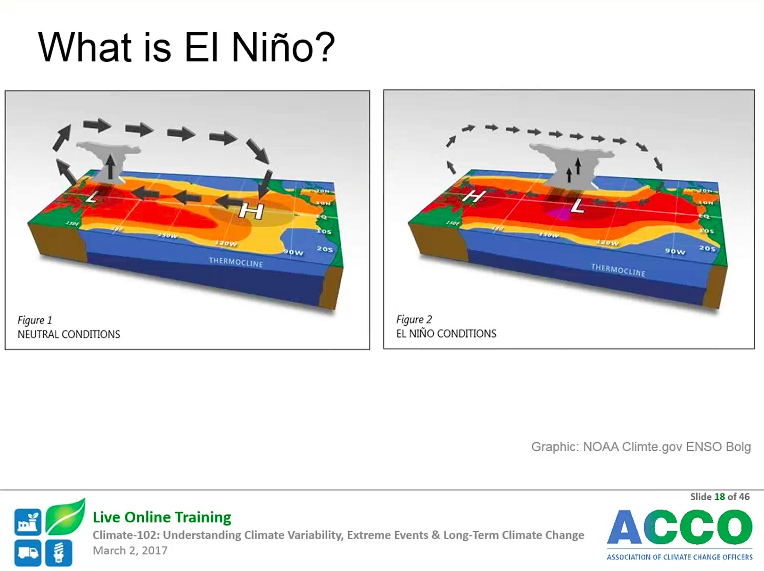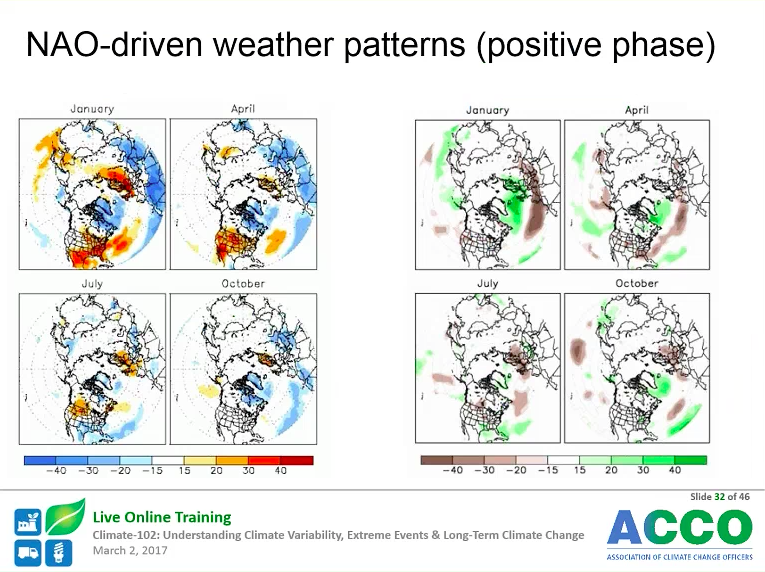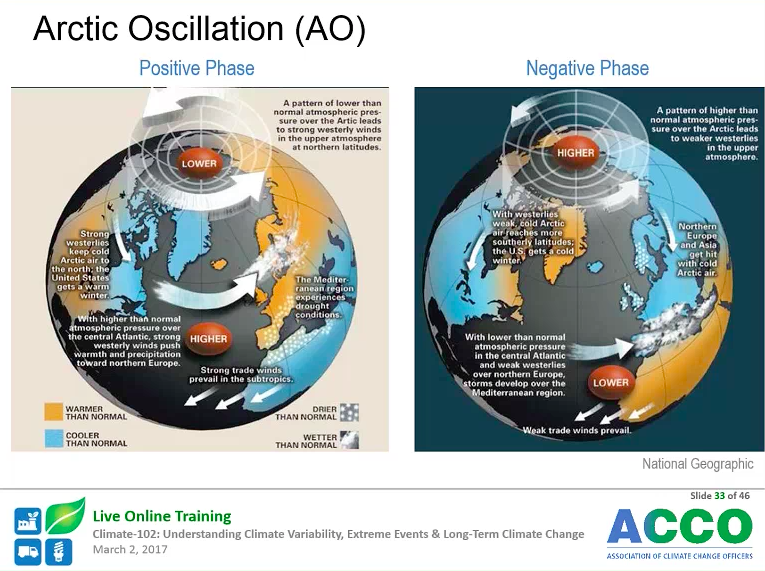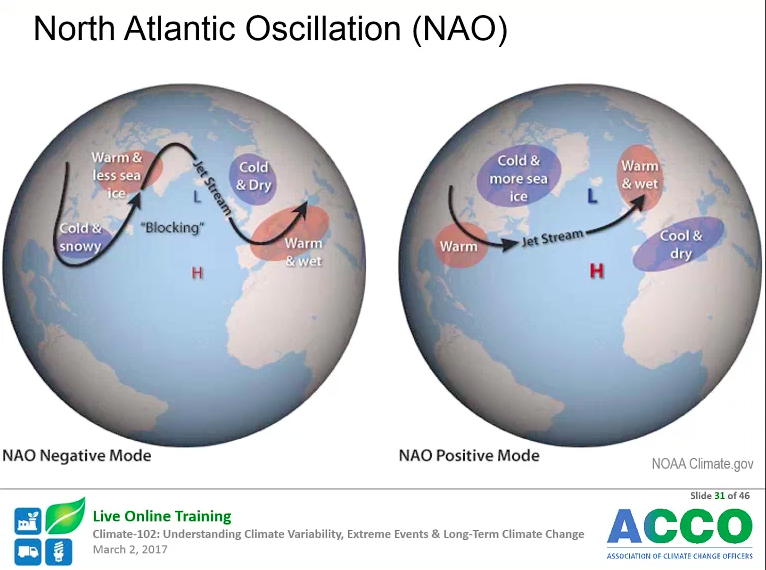Climate-102: Understanding Climate Variability, Extreme Events & Long-Term Climate Change
Elective
CLICK ON THE IMAGE ABOVE FOR A SAMPLE CLIP FROM THE ONLINE TRAINING. TO PURCHASE ON-DEMAND ACCESS TO THIS TRAINING COURSE, CLICK ON THE 'ADD TO CART' BUTTON BELOW.
Sale Price:
$19.99
Original Price:
$24.99
Screen Shots from the Climate-102 Online Course
There is inherent variability built into the Earth's natural systems, but anthropogenic disruption of the atmosphere, biosphere and oceans is leading to longer-term climatic changes that cannot be ignored. More frequent and more extreme occurrences of certain types of weather events associated with climate change also increasingly challenge resilience and recovery. This Bootcamp gives participants an understanding of current climatic trends and shorter-term consequences that is critical to ensuring the stability and long-term success of an organization. Participants will learn about longer-term natural climate trends as a baseline for understanding current human disruptions to the climate system.
Learning Objectives
- Discerning the difference between climate variability and climate change
- Understanding the difference between climate and weather
- Assessing probability, magnitude and returns of extreme events
- Understanding uncertainties and limitations of climate projections, and how and when extreme weather events might change:
- Understanding IDF curves (intensity, duration, frequency)
- Attributing extreme events or weather patterns to climate change
- Understanding of regional / local examples as well as global data
- Distinguishing between climate change and modern climate variability, and communicating these issues
- Placing modern climate change in the context of long-term climate records
Course Architects
- Sara Espinoza – Managing Director, Research and Best Practices, National Environmental Education Foundation
- Adam Fenech – Director, UPEI Climate Research Lab, University of Prince Edward Island
- Katharine Hayhoe – Director of the Climate Science Center, Texas Tech University
- Rachael Jonassen – Professor, George Washington University
- Ken Kunkel – Senior Scientist and Science Lead for Assessments, National Climatic Data Center, NOAA
- Rich Olson – Director, Extreme Events Institute and International Hurricane Research Center, Florida International University
- Hans-Peter Plag – Professor, Ocean, Earth & Atmospheric Sciences, Old Dominion University
- Marina Timofeyeva – Physical Scientist, Climate Services Division, NOAA


